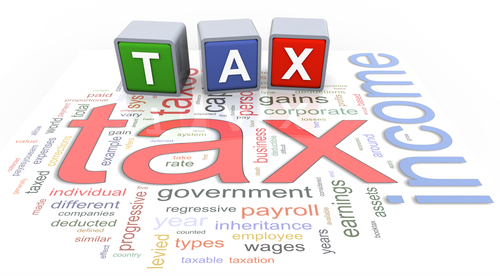IRS Options to Help Small Business Owners
Small business owners often have a running list of things to do. These include deadlines, sales calls, employee issues, banking, advertising – and taxes. The IRS can help with the last one.
Here are seven resources to help small businesses owners with common topics:
- Looking at the Big Picture: The Small Business and Self-Employed Tax Center brings information on IRS.gov to one common place.
- Organizing Tasks: The IRS Tax Calendar for Businesses and Self-Employed helps owners stay organized. It includes tax due dates and actions for each month. Users can subscribe to calendar reminders or import the calendar to their desktop or calendar on their mobile device.
- Searching for Topics: The A-to-Z Index for Business helps people easily find small business topics on IRS.gov.
- Getting Information by Email: Small business owners can sign up for e-News for Small Businesses. The free, electronic service gives subscribers information on deadlines, emerging issues, tips, news and more.
- Watching Videos: The IRS Video Portal offers learning events and informational videos on many business topics.
- Finding Forms: The Small Business Forms and Publications page helps business owners find the documents they need for the type of business they own. It lists tax forms, instructions, desk guides and more.
- Meeting in Person or Online: Small business workshops, seminars and meetings are held throughout the country. They’re sponsored by IRS partners that specialize in federal tax topics. Topics vary from overviews to more specific topics such as retirement plans and recordkeeping.
Should churches issue ministers a Form W-2 or Form 1099-Misc?
Should churches issue ministers a Form W-2 or Form 1099-Misc?
Most ministers have a “dual tax status”. Generally, they are employees for income tax purposes but are always self-employed for social security purposes with respect to their ministerial income. Ministers working for a church or church agency should receive a Form W-2. Ministers, who report their federal income taxes as self-employed on Form 1099, may face a significant risk of additional taxes and penalties, if they are audited and reclassified as employees by the IRS.
Under the latest treasury regulations, a minister is described as an employee for federal income tax purposes but as self-employed for social security tax purposes. What many minister’s often fail to consider is that when one files a 1040 tax return they are paying two types of taxes. They pay Federal Income Tax and Self Employment Tax. That makes the minister a hybrid of the tax code. Section 6051 requires the issuance of a W-2. However, because Section 3401 describes him/her as self-employed, the church is not required to withhold Federal Income Tax, FICA or Medicare taxes from their ministers’ pay, even if their ministers are employees for income tax purposes.
Many ministers voluntarily elect to have churches withhold income taxes from their pay. Most churches are required to withhold income taxes from non-minister employees. Churches can give ministers a Social Security “allowance” or “offset” to help the minister pay SECA taxes. Social Security allowances or offsets are considered as extra income. Ministers will have to report the allowance as income for federal income tax purposes and as income for SECA tax purposes.
Determining a taxpayer’s correct reporting status under the common law employee test is often difficult. The IRS has developed a list of 20 factors to be used as an aid in determining whether an individual is an employee as defined by the IRS. For more information about how the IRS decides if a worker is an independent contractor of employee, see IRS Publication 15-a, Employer’s Supplemental Tax Guide (Supplement to publication 15 (Circular E), Employer’s Tax Guide, on the IRS website at www.irs.gov.
For the most part, ministers are deemed to be common-law employees of the religious organization for which they work, and thus they should receive a W-2 form.
There are only a limited number of instances where a 1099-MISC may be applicable, one of which is if a minister is a traveling evangelist. As this is an easy IRS audit target, a tax preparer must exercise due diligence in ascertaining that a 1099-MISC issued to a minister is appropriate.
The IRS uses a checklist to evaluate whether individuals are independent contractors or employees. If your church controls the “who, where, when and how” of your work schedule, you’re probably an employee for tax purposes.
If you control your work product and have other clients, you’re most likely an independent contractor and should get a 1099 tax form.
There is a reason why the IRS demands a W-2. It is because under a W-2, the minister is not allowed to deduct business expenses on the Federal Income Tax portion of his/her liability except under the limiting reporting of Form 2106. If the minister gets a 1099-Misc, he/she usually deducts 100% of his/her expenses under Schedule C and gets a lower Federal Income Tax bill. Though many ministers do it this way, their chances of getting audited are higher and usually result in payment of back taxes plus penalties.
Oct. 15 Tax Deadline
Oct. 15 Tax Deadline Remains During Appropriations Lapse
The federal tax filing deadline for extension filers is quickly approaching on October 15, 2014. The IRS recently released a reminder of the deadline and some overlooked tax benefits that filers may be able to use:
IR-2014-93, Sept. 30, 2014
WASHINGTON —The Internal Revenue Service today reminded taxpayers that the Oct. 15 deadline remains in effect for people who requested a six-month extension to file their tax return.
The current lapse in federal appropriations does not affect the federal tax law, and all taxpayers should continue to meet their tax obligations as normal. Individuals and businesses should keep filing their tax returns and making deposits with the IRS, as required by law.
Many of the more than 12 million individuals who requested an automatic six-month extension earlier this year have yet to file their Form 1040 for 2012.
Though Oct. 15 is the last day for most people to file, some groups still have more time, including members of the military and others serving in Afghanistan or other combat zone localities who typically have until at least 180 days after they leave the combat zone to both file returns and pay any taxes due. People with extensions in parts of Colorado affected by severe storms, flooding, landslides and mudslides also have more time, until Dec. 2, 2013, to file and pay.
The IRS offered several reminders for taxpayers during the current appropriations lapse:
Taxpayers are encouraged to file their returns electronically using IRS e-file or the Free File system to reduce the chance of errors.
With TruPoint Accounting & Tax your taxes are always free*. Click to start now!
Taxpayers can file their tax returns electronically or on paper. Payments accompanying paper and e-filed tax returns will be accepted and processed as the IRS receives them. Tax refunds will not be issued until normal government operations resume.
IRS operations are limited during the appropriations lapse, with live assistors on the phones and at Taxpayer Assistance Centers unavailable. However, IRS.gov and most automated toll-free telephone applications remain operational.
Tax software companies, tax practitioners and Free File remain available to assist with taxes during this period.
Check Out Tax Benefits
Before filing, the IRS encourages taxpayers to take a moment to see if they qualify for these and other often-overlooked credits and deductions:
Benefits for low-and moderate-income workers and families, especially the Earned Income Tax Credit. The special EITC Assistant can help taxpayers see if they’re eligible.
Savers credit, claimed on Form 8880, for low-and moderate-income workers who contributed to a retirement plan, such as an IRA or 401(k).
American Opportunity Tax Credit, claimed on Form 8863, and other education tax benefits for parents and college students.
Same-sex couples, legally married in jurisdictions that recognize their marriages, are now treated as married, regardless of where they live. This applies to any return, including 2012 returns, filed on or after Sept. 16, 2013. This means that they generally must file their returns using either the married filing jointly or married filing separately filing status. Further details are on IRS.gov.
E-file Now: It’s Fast, Easy and Free
The IRS urged taxpayers to choose the speed and convenience of electronic filing. IRS e-file is fast, accurate and secure, making it an ideal option for those rushing to meet the Oct. 15 deadline. The tax agency verifies receipt of an e-filed return, and people who file electronically make fewer mistakes too.
Everyone can use Free File, either the brand-name software, offered by IRS’ commercial partners to individuals and families with incomes of $57,000 or less, or online fillable forms, the electronic version of IRS paper forms available to taxpayers at all income levels.
TruPoint Accounting & Tax offers free tax preparation to people who generally make $100,000 or less, persons with disabilities, the elderly and limited English speaking taxpayers who need assistance in preparing their own tax returns. Our IRS-certified preparers provide free basic income tax return preparation with electronic filing to qualified individuals.
Taxpayers who purchase their own software can also choose e-file, and most paid tax preparers are now required to file their clients’ returns electronically.
Anyone expecting a refund can get it sooner by choosing direct deposit. Taxpayers can choose to have their refunds deposited into as many as three accounts. See Form 8888 for details.
Of the nearly 141.6 million returns received by the IRS so far this year, 83.5 percent or just over 118.2 million have been e-filed.
Payment Options
Taxpayers can e-pay what they owe, either online or by phone, through the Electronic Federal Tax Payment System (EFTPS), by electronic funds withdrawal or with a credit or debit card. There is no IRS fee for any of these services, but for debit and credit card payments only, the private-sector card processors do charge a convenience fee. For those who itemize their deductions, these fees can be claimed on next year’s Schedule A Line 23. Those who choose to pay by check or money order should make the payment out to the “United States Treasury”.
Taxpayers with extensions should file their returns by Oct. 15, even if they can’t pay the full amount due. Doing so will avoid the late-filing penalty, normally five percent per month, that would otherwise apply to any unpaid balance after Oct. 15. However, interest, currently at the rate of 3 percent per year compounded daily, and late-payment penalties, normally 0.5 percent per month, will continue to accrue.
Fresh Start for Struggling Taxpayers
In many cases, those struggling to pay taxes qualify for one of several relief programs. Most people can set up a payment agreement with the IRS on line in a matter of minutes. Those who owe $50,000 or less in combined tax, penalties and interest can use the Online Payment Agreement to set up a monthly payment agreement for up to 72 months or request a short-term extension to pay. Taxpayers can choose this option even if they have not yet received a bill or notice from the IRS.
Taxpayers can also request a payment agreement by filing Form 9465. This form can be downloaded from IRS.gov and mailed along with a tax return, bill or notice.
Alternatively, some struggling taxpayers qualify for an offer-in-compromise. This is an agreement between a taxpayer and the IRS that settles the taxpayer’s tax liabilities for less than the full amount owed. Generally, an offer will not be accepted if the IRS believes the liability can be paid in full as a lump sum or through a payment agreement. The IRS looks at the taxpayer’s income and assets to make a determination regarding the taxpayer’s ability to pay. To help determine eligibility, use the Offer in Compromise Pre-Qualifier, a free online tool available on IRS.gov.
Details on all filing and payment options are on IRS.gov.
Work cited:
http://www.irs.gov/uac/Newsroom/Reminder:-Oct.-15-Tax-Deadline-Remains-During-Appropriations-Lapse
Most Extreme Tax Deductions of 2015
When it comes to tax season, taxpayers will always try to find ways to get the most money from their refund. Like the time you tried to claim your dog Toby as a dependent. After all, he does “depend” on you as his pet owner, and those dog treats don’t buy themselves. But for some, getting the most may require doing the most extreme deduction possible. Here’s a list of the ten most outrageous deductions of 2015, so far.
1. Ghost Dependents
As it is common for most tax payers to try to claim their pets as dependents, it’s certainly extreme to try and claim an unborn child. The Texas mother who attempted this was not “expecting” the call she received from IRS.
2. A Joyous Occasion
So you got married this year, congratulations! Unfortunately, party-ing it up on the night of your wedding with 250 “business partners” is not actually deductible as entertainment expense.
3. Horseplay & Hobbies
Sorry, but IRS does not deduct hobby expenses. One client learned that fast when he tried to take deductions his horse ranch.
4. Keepin It Up!
Your job may require you to keep up with your appearance when meeting with clients, but a new haircut, surgical procedures, and your stylist expenses are generally not deductible. But you look good though.
5. Having A Home Office
IRS allows deductions only on the portion of the home that is dedicated to the business. Some at home business owners have gone to the extreme trying to claim groceries and even the mortgage.
6. Getaway Trips
Taking your vacation days shouldn’t be a problem. Taking deductions on the vacation you and your co-workers took in Jamaica is a big one for the IRS.
7. Traffic Fines
Running a traffic light on the way to your business meeting can happen, but speeding tickets are fines and therefore, not deductible on your tax return.
8. Misleading Charitable Donations
Indeed, charity can come in many forms. But for one CPA’s client, he learned that vehicles impounded by the police are not deemed as qualifying deductions.
9. Boats
Avoid rough seas with the IRS by not deducting your boat as a “water computer” as one CPA had to enlighten their client.
10. Bad Investments
A loss on a sale of home is unfortunate, and also doesn’t qualify as investment by the IRS therefore, it is not a qualifying deduction.
Have questions on what’s deductible and what’s not? Don’t fall in the same extreme category as these folks. Contact us for more advice.
E-file has begun – Start Today!
It is finally here! Horay!
TruPoint Accounting & Tax has guaranteed high quality service that delivers an immediate return on investment. We have significantly reduced travel face-to-face tax preparations thereby ensuring accuracy, improving productivity and increasing time for you to relax.
File Online with us. Follow 3 easy steps to file your return online and get e-filed in minutes.
We hope you are as excited as we are to OFFICALLY kick off the tax season. The IRS is expecting 150 million individual income tax returns this year, and more than 80% of those will be filed electronically. E-File with direct deposit is the fastest way you can get your tax refund. You can always enjoy the flexibility of paying nothing up front and choosing how you want to receive your tax refund.
Even though e-File is upon us, it’s not too late to start! Register with TruPoint Accounting & Tax today.




